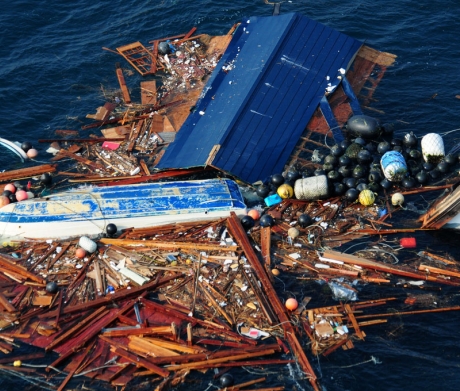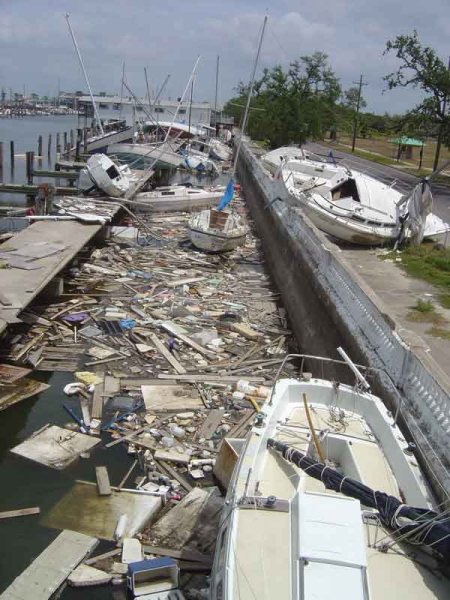
There are many ways to prepare for hurricanes as individuals, organizations, and as communities. Hurricanes pose threats from storm surge, inland flooding, wind damage, and even tornadoes. These impacts also lead to a lesser known but dangerous threat—natural and man-made marine debris. Powerful storms can pull apart large structures including houses and docks and sweep them into waterways and oceans along with boats, vehicles, and outdoor furniture. Debris may remain in shallow waters and create safety hazards for individuals, obstruct navigation channels, and threaten natural resources. Often, marine debris is an unavoidable impact of these storms. However, there are ways that individuals, organizations, and communities can work to minimize the amount of debris created by a storm.
In late August, the National Ocean Service responded to Hurricane Ida by providing aerial overflights to assess the damage, assist in opening ports and waterways, and support missions in response to marine pollution and debris. NOAA had prepared in advance for these missions, and responded efficiently and effectively. A month later, NOAA staff from the Office of Response and Restoration are still deployed in Louisiana supporting pollution and more than a thousand sunken and displaced vessels. Recovery will be a very slow and costly process.
Individuals and communities can also take actions to help prevent marine pollution before a storm. The first step to prevent marine pollution is to be aware of any storms that might impact your area and make a note of any items around your home and neighborhood that could become debris. Stay informed by following the National Hurricane Center, your local National Weather Service office, and local news media to ensure you’ll be aware when a storm threatens your area, particularly in an event with short notice such as recent Tropical Storm Mindy. When a storm does head toward your community, a few simple steps can help you avoid additional damages caused by debris.

Bring any outdoor decorations or furniture indoors and secure any items that cannot be moved indoors. Don’t forget to secure trash and recycling bins and tie down the lids so they cannot blow open. Before the winds are forecast to impact your area, take a walk around your home and neighborhood to pick up any debris and litter and clean out any catch basins. Keeping catch basins clear can also help to prevent localized flooding. If you own a boat, be sure to have a hurricane plan in place for it as well. There are steps you can take well in advance of a storm, such as replacing any old and worn dock lines. If possible, remove your boat from the water when a storm is forecast to impact your area.
Preparedness doesn’t have to begin when the forecast is dire, as individuals we can take steps months in advance of hurricane season to help minimize marine debris during a storm.
